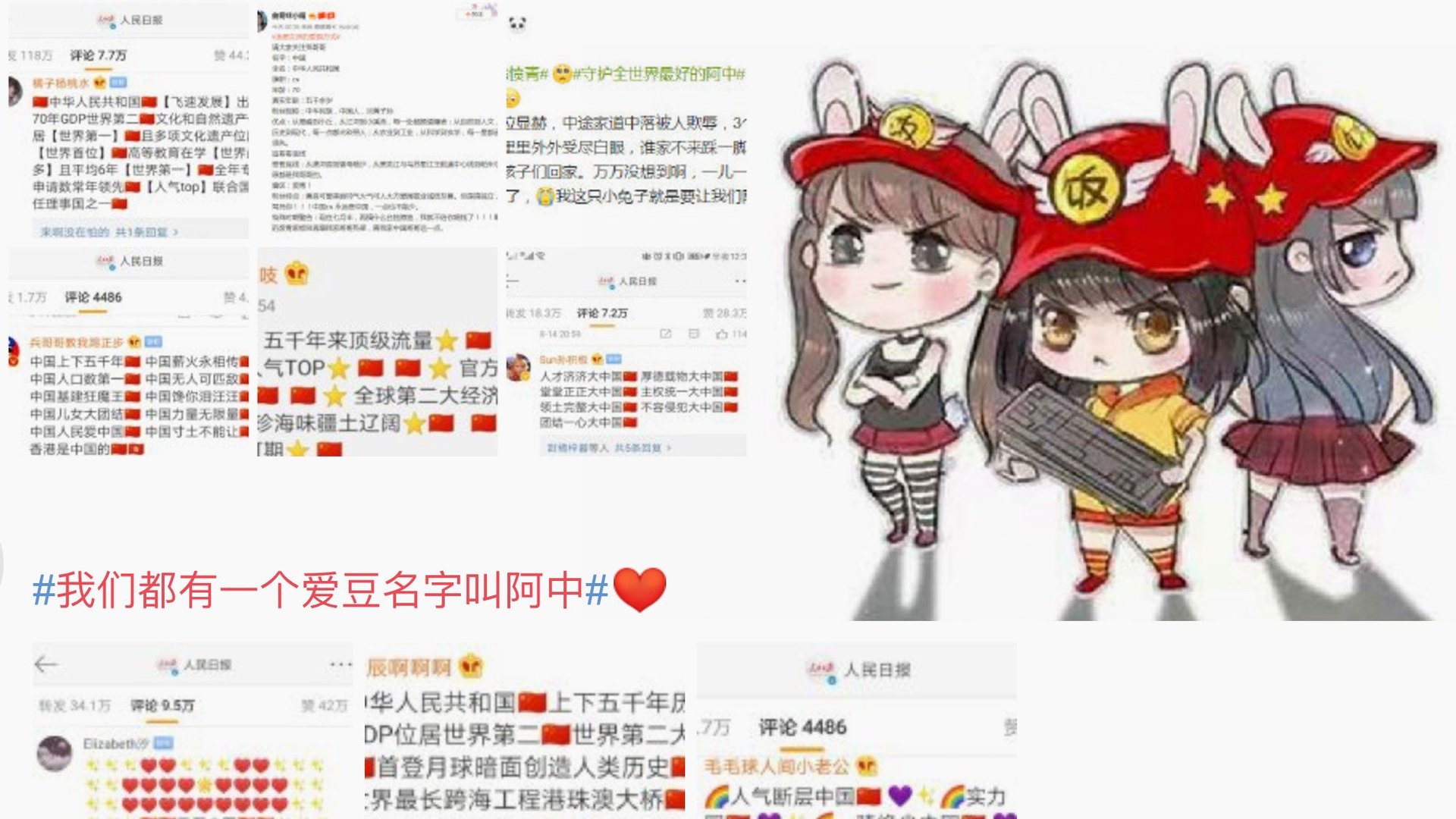China’s fan-girl culture is mobilizing against the Hong Kong protests
In Hong Kong, celebrities condemning the pro-democracy protests, or supporting the police, have faced boycotts. In mainland China, that has infuriated fans of those celebrities, among them Jackie Chan and Liu Yifei (the star of Disney’s live-action Mulan).


In Hong Kong, celebrities condemning the pro-democracy protests, or supporting the police, have faced boycotts. In mainland China, that has infuriated fans of those celebrities, among them Jackie Chan and Liu Yifei (the star of Disney’s live-action Mulan).
The anger has helped fuel a massive online campaign in China, with various fan bases standing behind a newly created idol: China itself.
Using language heavily influenced by China’s fan-girl culture, a post on the social network Weibo personifies the nation as a “little brother” (link in Chinese) who needs to be protected:
#This is how fans express our love for the country#
Please give attention to my little brother: (请大家关注我哥哥)
Name: ChinaFull name: People’s Republic of China
Flag: CN
Age: 70
Real age: 5000+
Traits: Natural beauty; full of historical knowledge; well balanced across science and humanities.
Bottom line: 9.6 million square meters belongs to my little brother
Red zone: Wasted youngsters (referring to HK protesters)
Characteristics of fans: Kind, good-looking, well-behaved, patriotic, honest, hardworking. But if you want to get independence from my little brother, I will curse you to death. Hong Kong is and will always be part of China.
Warnings for the special period: Now it’s in mid-July. If you continue advocating for the independence of Hong Kong or Taiwan, we would cut off your finance. Act smart and leave my little brother alone.
Fans of “little brother” flooded social media platforms—including Western ones like Instagram and Twitter—with supportive comments and threads, while dissing the Hong Kong protesters. Most of these fans appear to be genuine ones, as opposed to government-backed propagandists.
To understand what’s going on, it helps to know a bit about China’s fan-girl culture.
Calling all fan girls
In China, fan girls come from all backgrounds and are bound together by a selfless love for their idols. The core fan bases are comprised largely of young women. They support feminine stars in boy bands and consume gay fiction. They are superb at organizing and can easily launch a crusade, during which individual wills voluntarily give way to a collective goal.
The Chinese government has at times clashed with fan girls. Last year, Weibo banned homosexual content, which the authorities deemed unwholesome. The ban was short-lived, however, after the LGBT community fought back.
This time is different. Authorities are not only standing behind the fan girls, but also amplifying their message. The state-run China Daily led a trending “super-topic” hashtag on Weibo: #We all have an idol called China# (#我们都有一个爱豆叫阿中#). One post pinned to the top says: “When the national dignity is challenged, those born after 1995 and in the 2000s expressed their love for the country to our nation and to the world in their own ways.”
And in a rare case, a lengthy fan-girl post (link in Chinese) about the 1989 Tiananmen Square crackdown wasn’t removed. Instead, it got over 8,000 likes and over 1,000 comments in less than 12 hours. A fan girl explained tactics one could use when confronted with online descriptions of the event:
“Don’t waste time debating with wasted youngsters in Hong Kong. Tell them the truth and leave. For those who don’t know what happened in 1989, read this (official document). Make your own judgement. Don’t get persuaded by the narrative of others. The internet community outside China often takes advantage of the incident and lays blame on our government. We need to know what actually happened to fight back…Our [little brother] China never mentioned this event to get sympathy. When accusations came, he ate it up. We will speak out for him.”
The Communist Youth League, meanwhile, organized another trending hashtag: #The fan girls’ crusade# (#饭圈出征#). The leading picture of the topic portrays three cartoon girls with rabbit ears and miniskirts. They wear red hats with “fans” written on them, carry keyboards, and have an angry look. The caption reads, “Protect our best China. Fan girls will fight against the Hong Kong protesters.”